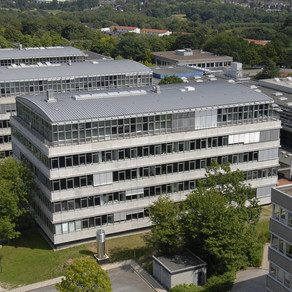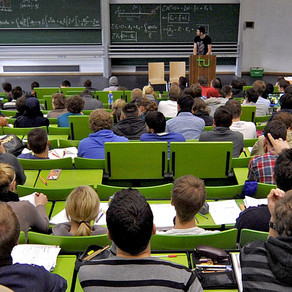IN BETWEEN (2020 - 2025)
The research project DAZWISCHEN, funded by the BMBF, deals with the structural change in the Rhenish mining area, which is located between the Rhine river (Düsseldorf, Cologne, Bonn) in the east and the border region around Aachen in the west and is led by Prof. Dr. Stefan Greiving (TU Dortmund, IRPUD). First of all, the strengths (spatial talents), weaknesses (spatial resistances) and spatial requirements of the region on different levels (Rhenish Revier, district of Euskirchen, city of Düren) will be worked out and analyzed for the status quo together with the actors in the region. In addition, future developments will also be modeled and presented. The main fields of action are climate, open space, settlement, mobility and public services. Both status quo and possible development corridors (evolving baseline trends) are then bundled in a spatial information system (RIS). DAZWISCHEN promotes regional cooperation through real laboratories, which can also be understood as adaptation laboratories with regard to the upcoming structural changes. Furthermore, one objective is to generate guiding principles and development strategies for the region (and beyond).
The Chair LLP (Prof. Dr. Dietwald Gruehn & M.Sc. Florian Klopfer) is in charge of the work package 3.1 "Analysis of the current spatial-structural state". The first step is to develop a comprehensive data basis for the analysis of the current spatial condition. In the next step, suitable indicators and analyses will be coordinated with experts in a series of diagnostic workshops. In the field of action open space, ecosystem services (e.g. water and soil-related regulatory functions, recreational function or biotic yield function) will be considered in particular against the background of increasing competition for land.
Results (milestones) of this work package will be the diagnostic workshops with the collection and reconciliation of a basic data set as well as a layer model with maps on spatial structure including ecosystem services. These results are important prerequisites for the RIS to be developed later as well as further work packages.
The research project is funded in the three-year research and development phase, starting on 01.02.2020, by the Federal Ministry of Education and Research as part of the funding program "Stadt-Land-Plus". In addition to the TU Dortmund University (IRPUD & LLP), the RWTH Aachen University (Chair and Institute for Urban Planning), infas (Institute for Applied Social Science GmbH), the city of Düren, the district of Euskirchen and the Zukunftsagentur Rheinisches Revier are involved in the project as associated partners.






